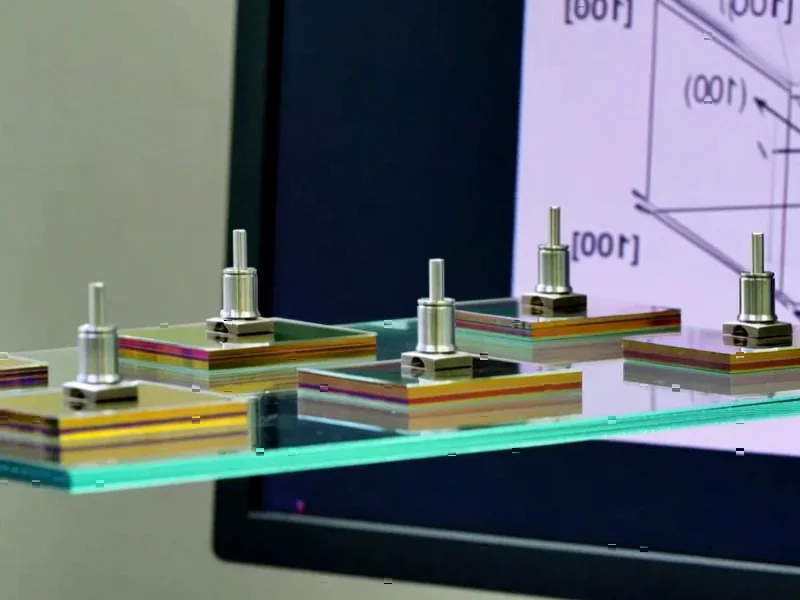According to Engineer Live, Aed Energy, a UK developer of next-generation thermal energy storage technology, has been selected for Cohort 1 of the EarthScale Programme, a national initiative supported by Research England and delivered through six UK universities including Imperial College London and the University of Leeds. The programme specifically targets IP-rich climate tech companies at Technology Readiness Levels 5-6, providing Aed Energy with tailored technical and commercialisation support, access to specialist research facilities, and investment-readiness training over the next 12 months. CEO Rayan Kassis noted that this selection reflects the growing maturity of their technology and the urgent need for scalable, affordable long-duration energy storage. The company’s modular thermal battery system can store renewable energy for days to weeks, converting it into high-temperature heat and regenerating it as power on demand without cycling or degradation losses. This development signals important progress for industrial decarbonisation efforts.
The Critical Gap in Energy Storage
While lithium-ion batteries dominate headlines for short-duration storage, the real challenge for grid decarbonisation lies in long-duration solutions that can bridge seasonal gaps and multi-day weather patterns. Aed Energy’s thermal storage approach addresses this fundamental limitation of current battery technologies, which typically provide only hours of storage. Industrial users particularly need continuous, reliable energy that renewables alone cannot guarantee without massive overbuilding of generation capacity. The ability to store energy for days to weeks rather than hours represents a paradigm shift that could fundamentally change how we design energy systems for heavy industry.
Why University Partnerships Matter
The EarthScale Programme’s connection to six leading UK universities through their specialist platform provides Aed Energy with more than just laboratory access. This ecosystem offers deep expertise in materials science, thermodynamics, and engineering that would be prohibitively expensive for a startup to develop internally. More importantly, universities bring credibility and validation that can accelerate regulatory approval and customer adoption. For industrial buyers considering multi-million pound energy infrastructure investments, the backing of institutions like Imperial College London significantly de-risks adoption of new technologies. This academic partnership model represents a sophisticated approach to commercialising research that other countries are watching closely.
Transforming Industrial Energy Consumption
The real breakthrough potential lies in Aed Energy’s focus on high-temperature industrial heat, which accounts for approximately 20% of global energy consumption and remains notoriously difficult to decarbonise. Industries like cement, steel, and chemicals require continuous high-temperature processes that have traditionally relied on fossil fuels. According to the company’s technology overview, their system’s ability to provide emissions-free energy without cycling or degradation losses directly addresses the reliability concerns that have prevented wider adoption of renewable energy in heavy industry. This could enable sectors with around-the-clock operations to transition away from natural gas and coal without compromising production schedules or product quality.
The Path to Market Reality
Despite the promising technology, Aed Energy faces significant commercialisation hurdles that the EarthScale Programme is specifically designed to address. Scaling thermal storage from prototype to industrial-grade systems requires navigating complex supply chains, establishing safety certifications, and developing maintenance protocols that industrial customers demand. The 12-month programme timeline suggests the company is likely 2-3 years from meaningful commercial deployment, assuming successful technology validation and pilot projects. Investment readiness will be crucial, as energy storage projects typically require substantial capital expenditure before generating revenue, creating a financing gap that has stalled many promising cleantech innovations.
Positioning in the Global Storage Race
The UK’s strategic investment through EarthScale comes as multiple countries race to develop long-duration energy storage solutions. The United States has similar programmes through ARPA-E, while China dominates manufacturing of conventional battery technologies. Aed Energy’s selection represents Britain’s attempt to carve out leadership in thermal storage specifically, leveraging the country’s strong academic research base in thermodynamics and materials science. Success could position the UK as an exporter of industrial decarbonisation technology rather than just an importer of renewable components. However, the window for establishing competitive advantage is narrow, with several well-funded competitors developing similar thermal storage concepts globally.





Can you be more specific about the content of your article? After reading it, I still have some doubts. Hope you can help me.